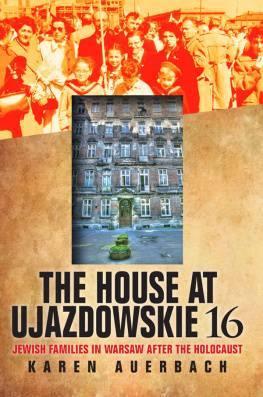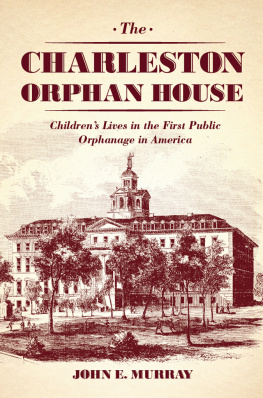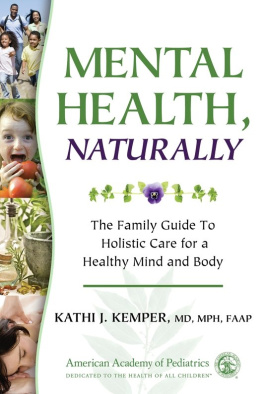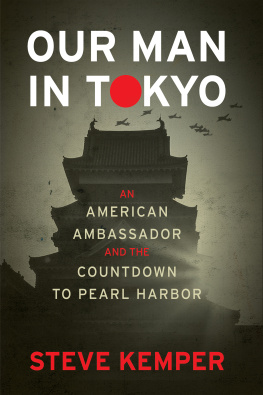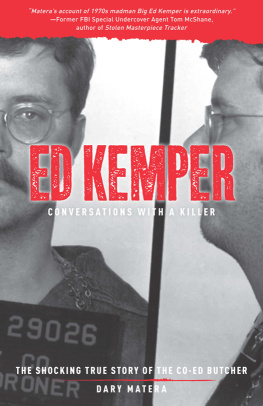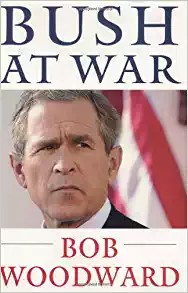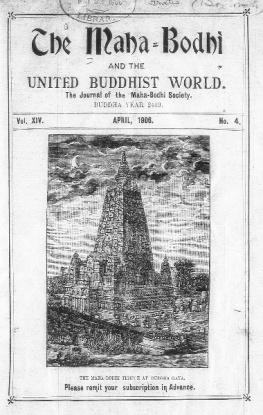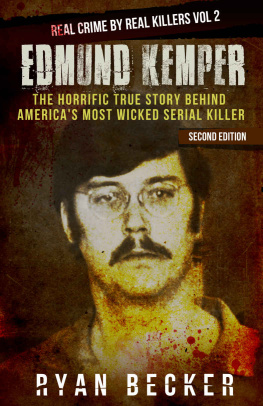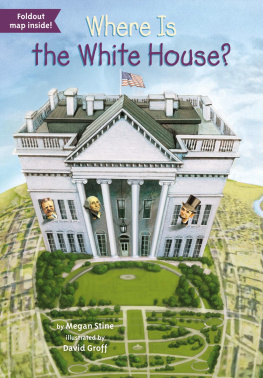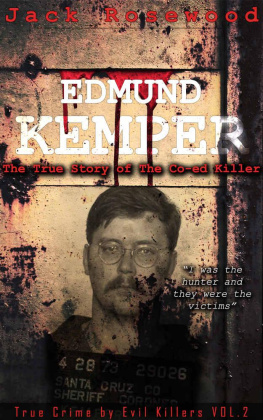RUBBLE
RELATED TITLES FROM POTOMAC BOOKS
Generations End:
A Personal Memoir of American Power After 9/11
Scott L. Malcomson
Freaking Out:
A Decade of Living with Terrorism
Joshua Woods
RUBBLE
HOW THE 9/11 FAMILIES
REBUILT THEIR LIVES AND INSPIRED AMERICA
BOB KEMPER

Copyright 2011 by Bob Kemper
Published in the United States by Potomac Books, Inc. All rights reserved. No part of this book may be reproduced in any manner whatsoever without written permission from the publisher, except in the case of brief quotations embodied in critical articles and reviews.
Library of Congress Cataloging-in-Publication Data
Kemper, Bob.
Rubble : how the 9/11 families rebuilt their lives and inspired America / Bob
Kemper.1st ed.
p. cm.
Includes bibliographical references and index.
ISBN 978-1-61234-109-5 (hardcover)
ISBN 978-1-61234-110-1 (electronic edition)
1. Terrorism victims familiesUnited States. 2. September 11 Terrorist
Attacks, 2001. 3. Post-traumatic stress disorder. I. Title.
HV6432.7.K454 2011
973.9310922dc22
2011014003
Printed in the United States of America on acid-free paper that meets the American National Standards Institute Z39-48 Standard.
Potomac Books
22841 Quicksilver Drive
Dulles, Virginia 20166
First Edition
10 9 8 7 6 5 4 3 2 1
For my mom, Lucy Kemper, and
in loving memory of my dad, Bob Kemper,
the two who always believed
despite all evidence to the contrary.
CONTENTS
ACKNOWLEDGMENTS
Anyone who claims writing is a solitary pursuit clearly never had to finish a book. This one would have been impossible without the help of many friends, old and new. First and foremost, I am deeply grateful to the family members who lost loved ones on September 11, 2001, and who shared their lives with me. Your courage continues to inspire. I am indebted, too, to Laura Oaksmith, who so generously shared her marketing genius; Bob Deans, who taught me the importance of answering all three questions; and Mike Hedges, for plodding through an early draft and ensuring that I soldiered on. I also want to thank my agent, Diane Nine of Nine Speakers Inc., who took a chance on a guy with no track record; and to everyone at Potomac Books, including Sam Dorrance, Laura Briggs, and my editors, Hilary Claggett and Julie Gutin, who somehow struck the perfect balance between patience and prodding that saw me through. Most of all, Im grateful toand forRyan, Jack, and Grace, who sacrificed so much and without whose support I never would have made it. I love you.
PROLOGUE
We will never forget!
9/11 changed everything!
United we stand!
We believed deeply in our own slogans a decade ago, in the aftermath of the most cataclysmic attack ever on the United States: September 11, 2001, the day nineteen terrorists, fueled by religious fervor, hijacked airliners to reduce the most magnificent symbols of Americas economic and military might to rubble. But we are already forgetting. Except for longer, slower lines at airports, not much has really changed for most of us. The nearly universal sense of unity we felt under such horrendous circumstances, as glorious as it was, has faded, and we are now, a decade later, so divided as a country that that sense of togetherness feels more like something we dreamed, a fading impression. None of that is to say that the scars of 9/11 have faded entirely, particularly for the tens of thousands who survived the attacks or lost loved ones. For them, life remains brutally cleaved in two: Before and After. Just over sixteen hundred of them, mostly women, lost their spouses. More than three thousand children lost a parent. More than seventeen hundred families never even got the chance to bury their loved ones because no remains were ever found. They had vanished without a trace.
Theyre called the 9/11 community, though the term paints them inaccurately and unfairly as a singular, monolithic mass. In reality, they are as random a collection of human beings as could be assembled: stockbrokers and busboys; black, brown, white; Christian, Muslim, Jew. Its a group whose membership was decided by the tiniest measure of fate, split-second decisions made amid utter chaos: to head for the stairs rather than retrieve a coat, log off the computer, or answer a ringing phone; to stop on their way out to help someone else get down the stairs, thinking they had time when, in fact, time had run out.
Every one of the nearly three thousand people murdered that day left someone behind. Children, wives and husbands, mothers and fathers, brothers and sistersthey number in the tens of thousands, people who share the unimaginable reality that they had sent a family member off to a routine day of work or travel from which they never returned.
Frighteningly, the list of victims of 9/11 continues to grow. Fourteen thousand people, many of them firefighters and cops, descended on the World Trade Center site, while the rubble of the twin towers was still burning, in a heroic but largely futile effort to find survivors. They spent months breathing in poisonous dust and fumes without a thought for their own well-being, and many of them now lie dying, their families fighting the government for help in caring for them.
Two of the most frequently heard words that day and for many days after were victim and hero. What weve learned since then is that they are not mutually exclusive categories. The victims of 9/11 who were left behind became its heroes when they banded together first to help each other and then, ultimately, to inspire the rest of the nation by demanding answers and accountability from those in the U.S. government who failed us all. These were ordinary people who werent even sure how a bill became law or whether the House or Senate had more members, but they took on the White House and Congress and New York City Hall and, through sheer force of will, compelled them to do the right thing. The families agendas were as diverse as they were: They demanded that an independent commission investigate how the attacks could have been allowed to happen, and when the White House tried to stop them, they refused to stand down. They demanded that laws be rewritten so that no other families would ever have to endure what they were enduring, and when Congress balked, the families shoved the lawmakers forward. Some organized to pressure New York City to remove their loved ones ashen remains from a landfill called Fresh Kills and give them a proper burial. Others came together to help the children left behind or to ensure that a proper memorial is built to preserve the memories of those lost. Still others fight to change the way America builds skyscrapers so that anyone else who leaves home for a routine day at work is less likely to vanish without a trace. Its not the kind of attitude typically associated with victims.
None of that is to say that the families themselves were always united. Indeed, there were heated disputes among them over virtually every issue: whether an Islamic mosque should be built a few blocks from the former site of the World Trade Center that we now know as Ground Zero, whether suspected terrorists deserve hearings in civil courts, and what a permanent 9/11 memorial should look like.
Unanimity failed them even when it came to the killing of the one man they held responsible for their pain, al Qaeda leader Osama bin Laden, by U.S. forces in May 2011. Some family members went so far as to wish they could have pulled the trigger. Many hoped that bin Ladens final moments were filled with the same sense of terror their loved ones no doubt felt ten years earlier. But other family members decried the killing as an act of vengeance that would beget further vengeance.
Next page

